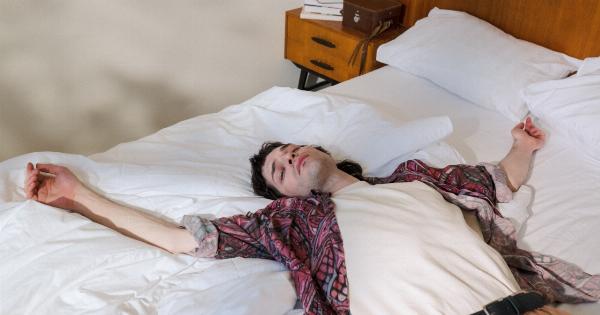Millennials are the generation born between 1981 and 1996. They are known for being tech-savvy, politically active, and socially conscious. However, recent studies have shown that millennials are also experiencing a significant rise in impotence.
What is Impotence?
Impotence, also known as erectile dysfunction, is the inability to achieve or maintain an erection during sexual activity. It can have physical or psychological causes and can affect men of all ages.
However, the rise of impotence in millennials is causing concern among healthcare professionals.
Causes of Impotence in Millennials
There are several causes of impotence in millennials, including:.
1. Pornography Addiction
Research has shown that millennials are more likely to consume pornography than previous generations. This overconsumption of pornography can lead to addiction, which can have a negative impact on sexual performance.
It can also lead to unrealistic expectations of sexual experiences, making it difficult for millennials to achieve arousal during real sexual encounters.
2. Stress and Anxiety
Millennials are known for being a stressed-out generation. The pressure to succeed in their careers, financial instability, and relationship problems can all contribute to stress and anxiety.
These mental health issues can have a significant impact on sexual performance, making it difficult to achieve or maintain an erection.
3. Poor Diet and Lack of Exercise
Millennials are also known for their poor dietary habits and lack of exercise. This can lead to obesity, which can have a negative impact on sexual performance. Obesity can cause a decrease in testosterone levels, which can lead to impotence.
It can also contribute to other health problems, such as diabetes, which can also cause impotence.
Treatment Options for Impotence
There are several treatment options available for impotence, including:.
1. Medications
There are several medications available for treating impotence, such as sildenafil (Viagra), tadalafil (Cialis), and vardenafil (Levitra).
These medications work by increasing blood flow to the penis, making it easier to achieve and maintain an erection.
2. Therapy
Therapy can be beneficial for men suffering from psychological causes of impotence. Cognitive-behavioral therapy (CBT) can help men identify and change negative thought patterns, which can contribute to anxiety and stress.
3. Lifestyle Changes
Healthy lifestyle changes, such as improving diet and exercise habits, can also have a positive impact on sexual performance. Losing weight, quitting smoking, and reducing alcohol consumption can all lead to improved erectile function.
Conclusion
The rise of impotence in millennials is a cause for concern. However, there are several treatment options available, and taking steps to improve overall health and well-being can also help to reduce the risk of impotence.
If you’re experiencing difficulty achieving or maintaining an erection, it’s important to speak to a healthcare professional about your treatment options.





























